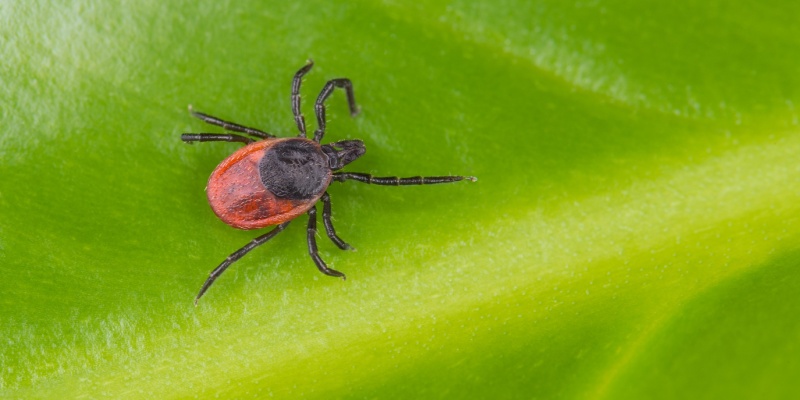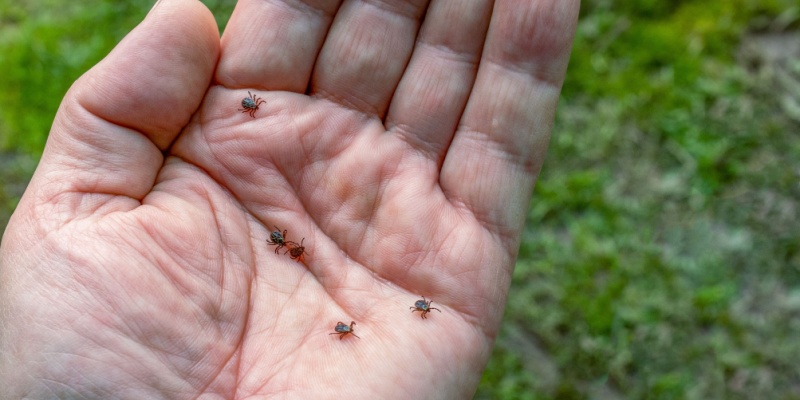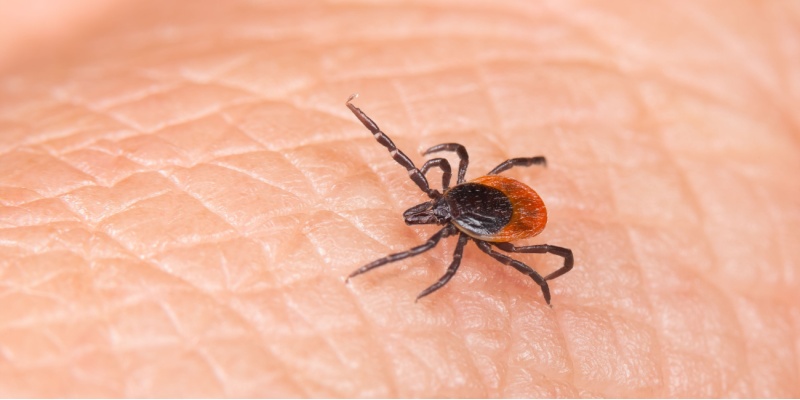Creating a tick-free yard is essential for protecting your family and pets from tick-borne diseases. Ticks thrive in warm, moist environments with plenty of vegetation, making yards with tall grasses, shrubs, and wooded areas ideal habitats. For homeowners in Augusta, Maine, implementing effective tick prevention strategies can significantly reduce the presence of ticks in your yard. Here’s how to create a tick-free yard in Augusta, ME:
Maintain Your Lawn and Landscaping
Proper lawn care and landscaping practices are foundational to creating a tick-free environment. By managing vegetation and reducing tick habitats, you can minimize tick populations around your home.
Lawn Care Tips:
- Keep Grass Trimmed: Regularly mow your lawn to keep grass short, as ticks prefer tall grasses where they can hide and quest for hosts.
- Remove Leaf Litter: Clear away fallen leaves, grass clippings, and other debris that can provide cover and nesting sites for ticks.
- Create a Barrier: Establish a barrier of wood chips, gravel, or mulch between your lawn and wooded areas to limit tick migration into your yard.
Landscaping Tips:
- Trim Shrubs and Trees: Keep shrubs, trees, and other vegetation trimmed away from your home’s exterior to reduce shaded, humid areas where ticks thrive.
- Clear Brush and Debris: Remove brush piles, woodstacks, and other clutter that can serve as tick habitats and hideouts.
Reduce Moisture Levels
Ticks require moisture to survive, so reducing excess moisture in your yard can make it less conducive to tick populations.
Moisture Control Tips:
- Improve Drainage: Ensure proper drainage in your yard to prevent standing water and damp areas that attract ticks.
- Use Mulch Wisely: While mulch can help retain soil moisture, using it sparingly and keeping it away from your home can reduce tick habitats.
- Ventilate Sheds and Garages: Proper ventilation in storage areas helps reduce humidity levels, making these spaces less attractive to ticks.
Encourage Natural Tick Predators
Promoting a balanced ecosystem in your yard can help control tick populations naturally by attracting predators that feed on ticks and their hosts.
Natural Predators:
- Birds: Install birdhouses or birdbaths to attract insectivorous birds like chickens and guinea fowl that eat ticks.
- Spiders: Support spider populations, as some spider species consume ticks.
- Ants: Certain ant species prey on ticks, contributing to natural tick control.
Habitat Enhancement:
- Diverse Plantings: Create diverse plantings that attract beneficial predators while discouraging rodent populations.
- Water Features: Maintain clean water sources to attract birds and other natural predators.
Regular Tick Checks and Prompt Removal
Even with a well-maintained yard, ticks can still find their way onto your family and pets. Regular tick checks and prompt removal are critical for minimizing the risk of tick-borne diseases.
Tick Check Practices:
- After Outdoor Activities: Perform tick checks on family members and pets after spending time outdoors, especially in tick-prone areas.
- Use Mirrors or Assistance: Use mirrors or enlist the help of another person to ensure thorough checks.
- Remove Ticks Properly: If you find a tick, use fine-tipped tweezers to grasp the tick as close to the skin’s surface as possible. Pull upward steadily without twisting, clean the area with rubbing alcohol or soap and water, and monitor for symptoms of tick-borne diseases.
Creating a tick-free yard in Augusta, ME, involves a combination of proper lawn and landscape maintenance, moisture control, the use of tick control products, encouraging natural predators, community education, and regular tick checks. By implementing these strategies, you can significantly reduce tick populations and protect your family and pets from tick-borne diseases.
For comprehensive tick control services and expert advice on maintaining a tick-free yard, reach out to Atlantic Pest Control. Our professional team provides tailored pest management solutions to ensure your yard remains safe and tick-free year-round.



